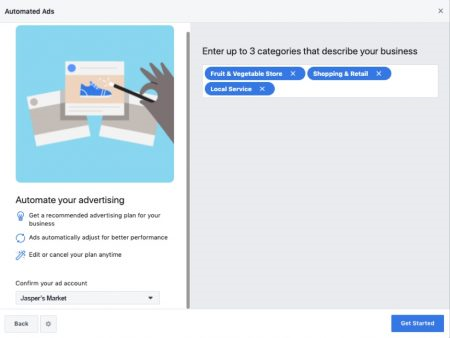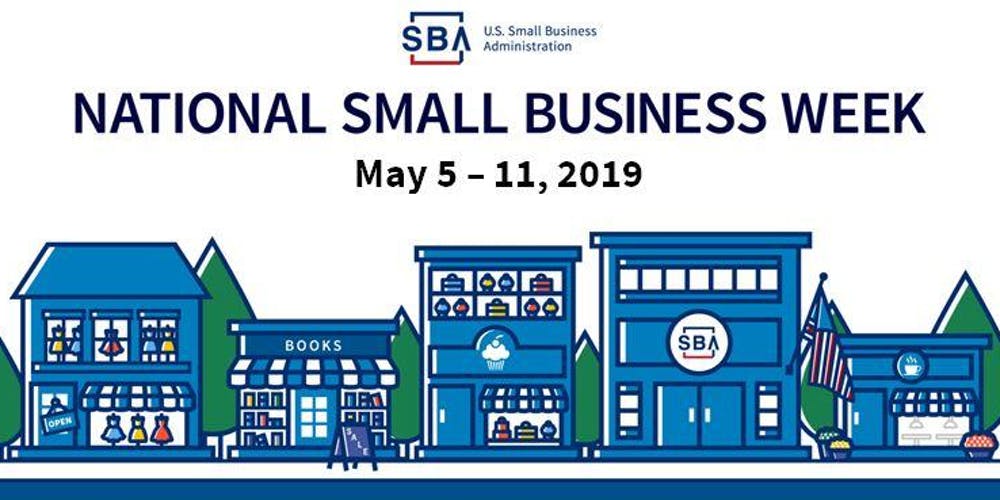
What a crazy year it’s been for Facebook. And it promises to swing even farther out of control.
Earlier this week, co-founder Chris Hughes announced his belief that Facebook has gotten so big, the company should be broken up. On the one hand, he defended Mark Zuckerberg, calling him “a good, kind person.” But in the next breath, Hughes pointed out that Zuck’s “focus on growth led him to sacrifice security and civility for clicks.” Ouch.
Many people in Congress agree with Hughes, and that’s why Zuckerberg has had to start sounding more transparent – a place where he’s not entirely comfortable. At Facebook’s F8 conference, he was compelled to redefine the social media environment. His new thinking?
“I believe the future is private.”
This, from a guy whose 800 pound gorilla has made one privacy gaffe after another. In a recent blog, we showed new Techsurvey 2019 data that underscores how Facebook is losing the trust of many of its customers. More than a quarter of respondents say they’re seriously considering leaving Facebook, due to privacy concerns.
And Zuckerberg may have reached the realization that Facebook is in need of a pivot.
At F8, he rolled out new features that seem like throwbacks to those early days when the “social network” was more about personal connections than “fake news” or political rants. Now, the emphasis seems to be returning to friends and family – and groups.
“Secret Crush” is a new feature that allows users to indicate they’re romantically interested in a certain Facebook friend – and finding out whether they share your desire. Unlike Tinder – where you’re checking out strangers – this Facebook feature is a way to find out whether there could be romantic potential among existing members of your friend network.
No one can predict whether “Secret Crush” can be a game-changer for Facebook, but the re-emphasis on relationships rather than politics is noteworthy.
but the re-emphasis on relationships rather than politics is noteworthy.
This new direction received the lion’s share of press coverage, but there’s another piece of Facebook’s new master plan that should be alarming to radio managers, owners, and sellers.
Timed to coincide with the start of National Small Business Week (May 5-11), Facebook has rolled out a suite of features, aimed squarely at small and medium-sized businesses – yup, SMBs. According to AdWeek’s David Cohen, the majority of Facebook’s 7 million advertisers are small businesses.
And that spells trouble for local radio sales. As national ad spending has shifted away from broadcast radio, and big box retailers have decimated the retail environment in markets big and small, Facebook’s focus on SMBs isn’t good news.
They’ve arrived at the conclusion that while small businesses may not be the least bit unified, working with them, educating them, and marketing directly to them can, in fact, be scalable – and therefore, profitable. For radio, where local commerce is becoming everything, Facebook’s foray in this arena signals what has already become a competitive threat.
 AdWeek reports that with its new features, Facebook says they’ll save local businesses plenty of time, while providing efficiencies in numerous areas. But the part of their program that caught my attention is the automated ad feature, making it easy for SMBs to build their own campaigns.
AdWeek reports that with its new features, Facebook says they’ll save local businesses plenty of time, while providing efficiencies in numerous areas. But the part of their program that caught my attention is the automated ad feature, making it easy for SMBs to build their own campaigns.
But it’s not just media buying made simple. Facebook wants to help SMBs create content. With one of their new features, local merchants and service professionals will be able to whip out their smartphones and create videos, complete with simple editing tools.
Facebook’s director of product management, Nikila Srinivasan, says these features were added because of interest by its SMB clients. Obviously, Facebook is researching SMB needs – and filling them.
And the final piece is Facebook’s full-court press on training for small businesses. There’s Blueprint, an e-learning program geared to small business.

And soon, Facebook will launch a massive sales training event program for SMBs that will take place around the world by the end of this year. They are in the process of rolling out 200 of these events. Undoubtedly, many will take place in markets like yours. This strategy could help put Facebook in the pole position when it comes to helping small businesses survive – and thrive.
There is no doubt what Facebook is aiming to accomplish here. Like many powerful organizations, they’re openly discussing some of their strategies and tactics, providing radio sales organizations with the opportunity to do some counter-programming.
So, what should local radio stations and their sales teams to do? We’ve come up with 7 suggestions:
- Bolster your professional and personal associations with SMBs – That means circling the wagons around existing relationships and embracing your existing clients. Despite Facebook’s automated ad features, this is still a relationship business.
- Conduct research among advertisers – Design it to assess their perceptions of your station and your team, while assessing the competition, including Facebook and other digital players. Determine the services and information they need in order to win in the marketplace. Then, actively work toward building programs and initiatives designed to meet those needs.
- Focus on great service – When a problem arises after hours or on weekends, remind clients they can reach your staff at any time to resolve issues. Again, you’re not going to get too far picking up the phone and calling Facebook.
- Remind them radio offers a better environment – On radio, there aren’t issues about privacy, or ads that run into close proximity with undesirable entities.
- Utilize the power of your station’s celebrity – This could be meet-and-greets with your personalities, as well as access to sporting events, concerts, and other hometown gatherings. It’s the way you can make clients feel special.
- Connect with the causes that are meaningful to your clients – Whether it is local charities or community events, doubling down on your hometown and what it stands for is another way to differentiate yourself from a digital predator.
- Next year, celebrate Small Business Week – Chances are good, your station missed it entirely this year, but that now gives you 366 days to start thinking about how to incorporate it into your sales and marketing strategy.
And finally a radical idea. Part of Facebook’s strategy is convincing SMBs that no one is too small to advertise on their platform. Many small businesses – nail salons,  hardware stores, tailors and dry cleaners, fitness studios – often believe they’re too small to advertise on radio.
hardware stores, tailors and dry cleaners, fitness studios – often believe they’re too small to advertise on radio.
Coming up with packages that any business can afford is a start, but working on a web interface that allows these SMBs to use a mouse and a keyboard to make a simple buy on your cluster, your station, or in your digital arena could be the beginning of something important for radio broadcasters.
Much about this Facebook strategy to go after local ad dollars is symptomatic of the larger issue framed by this question:
“Who’s your competition?”
On the programming side, it’s no longer just about other radio stations in town. The focus has expanded to streaming audio services, podcasts, satellite radio, and the many other forces that have become major players in their own right. They are all working hard to capture the consumer’s attention and time spent with media.
On the sales side, it’s looking more and more like the same rules apply.
Facebook – and others – are targeting your local sales environment.
- What To Do If Your Radio Station Goes Through A Midlife Crisis - April 25, 2025
- A 2020 Lesson?It Could All Be Gone In A Flash - April 24, 2025
- How AI Can Give Radio Personalities More…PERSONALITY - April 23, 2025




I’ve been reading your column for a couple of years and yesterday posted my first comment and today I’m posting number two. Go figure.
Radio should be concerned but no more today than yesterday, last week or last year. Your suggestions are solid and should provide any sales manager a good set of tactics to “circle the wagons” and build on their relationships.
Fortunately, for the past several years many broadcasters have also incorporated the selling of digital services to help local SMB’s. Those services include search, social, video, mobile and others. I’ve seen first hand how smart sellers have been morphing into real business developers and full on marketers providing solutions that include on-air and on-line opportunities. Many broadcasters are realizing they aren’t in the radio business anymore but are in the customer service business (listeners and advertisers). That slow change has helped shift the conversation for sellers to “how can I help serve my clients”. Not as much “what package can I sell them”.
Radio sellers and managers are moving into new arenas and providing these solutions as evidenced by the growth of digital dollars. Inside Radio reported on just that here – https://www.insideradio.com/radio-on-pace-for-its-first-b-digital-ad-revenue/article_821025b8-29e4-11e9-8c9c-7b7cc0f1e935.html
So, the good news is the focus is changing. The bad news is there is a long way to go to complete with platforms like Google, Facebook and the growing encroachment of Amazon. However, radio sellers and managers have historically been resilient, competitive and under fewer illusions today that the internet is their biggest competitor.
As for Facebook’s self serve tool, I can tell you first hand that most local SMB’s either don’t have time or will not manage it as effectively as a trained social media manager. While this tool is new and there will be clients proficient enough to manage it, there is an equally plausible opportunity to have it done for them by a trained professional and those people radio are is partnering with more and more.
The FB tool is similar to the one Google introduced years ago in search. Many clients do their own search. Few do it exceptionally well. Therein lies the opportunity for the progressive radio seller.
I read Chris Hughes 5800 word editorial and it’s to be seen whether government action will intervene or even get to the point of a breakup. At this point in time it feels like a 7-10 split. But in the day to day world that radio sellers live in their focus needs to continue to build on local relationships by helping their clients in a myriad of ways that ultimately provide a path towards effective marketing.
I hope you’re right in your assessment of local radio’s advantages, as well as what may likely happen with Facebook’s new master plan to go after SMBs. Local merchants may, in fact, be too busy or too overwhelmed to figure it all out. But the conceptual assault should not be lost on any local radio sales teams, all of whom could benefit from providing better care and customer service. Appreciate the strong comment, Jon. Thanks for reading our blog.